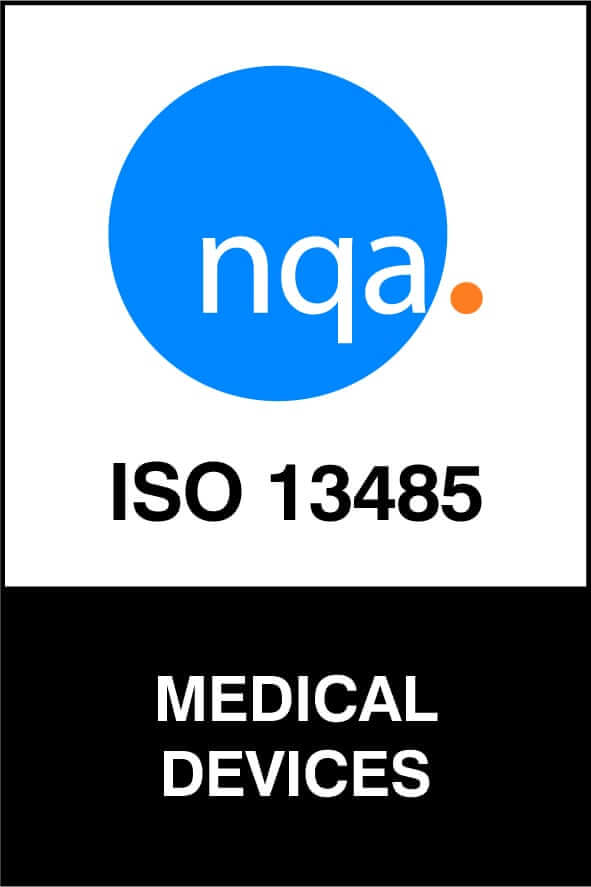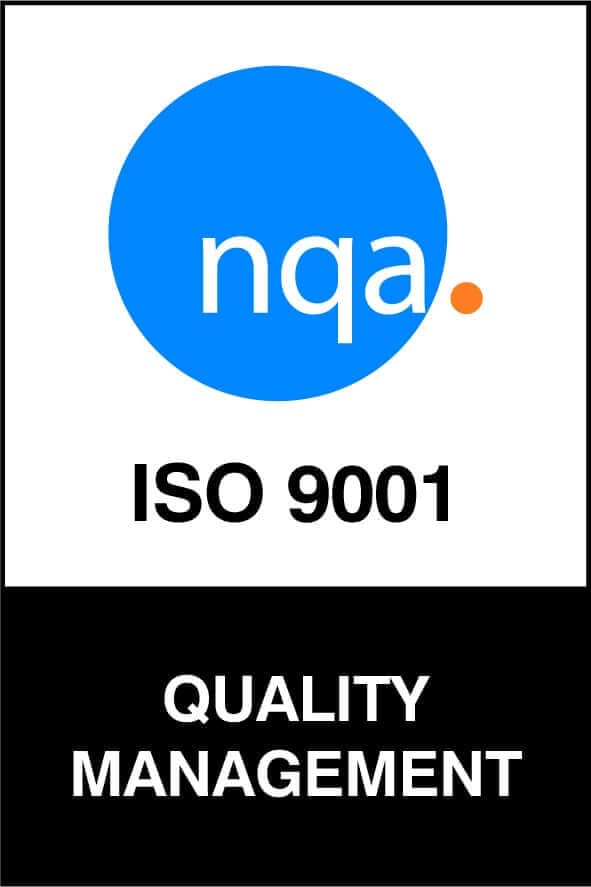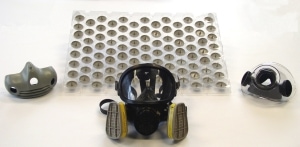Health and Safety
Jefferson Rubber Works Develops Packaging System to Ensure Functionality of Respirator Components
One of the most prevalent, growing concerns among jobsite managers today is work-related illness and injury. While a healthy and safe work environment promotes efficiency and productivity, occupational injury or sickness invariably sacrifices man-hours and worker output. The National Institute for Occupational Safety & Health (NIOSH), comprised of renowned scientists from a variety of fields related to occupational wellness, conducts studies, and offers recommendations for the prevention of work-related illness and injury. Associated with OSHA, NIOSH is a federal agency, and in collaboration with the Center for Disease Control and Prevention, has offered staggering statistics on the debilitating nature of work-related respiratory illness. It stresses the importance of using safe and functional respirator masks to reduce the number of work-related respiratory illnesses that occur each year.
According to NIOSH, occupational respiratory conditions due to toxic agents reached a low point in 1983, with 7,900 cases reported. From 1990-2000, the average number of such cases reported more than doubled at an astounding rate of 21,220 per year, with trends continuing into the current decade. In the latter half of the ‘90’s, over 13,000 workdays were missed due to work related respiratory illness.
Prevention of such respiratory concerns on the jobsite include the proper utilization of respiratory masks, but as NIOSH points out, even when a filter is used as instructed, it “may not always be effective in providing the required protection.” Is it possible that the functionality of respiratory masks may be compromised by something as simple as the mask’s packaging? One manufacturer made a startling discovery that has significantly enhanced the performance of protective masks.
The Challenge: Developing Suitable Packaging to Maintain Effectiveness of Respirator Face Masks
The American National Standards Institute follows a set of requirements for worksite respiratory programs, which emphasizes the proper maintenance and storing of respirators. To further supplement these guidelines, NIOSH has offered employers tips on ensuring that each workforce is properly trained in using the equipment. However, as a major mask manufacturer discovered, the functionality of respirators is constantly jeopardized when the items are shipped in standard cardboard packaging, rendering the masks useless before they even reach the worksite. The designer, a NIOSH approved manufacturer of masks, contacted Jefferson Rubber Works to analyze the situation.
After careful testing, Jefferson Rubber Works’ highly skilled team of engineers detected the sources of failure on the mask, as well as an evident cause. Many respirators now include state-of-the-art exhalation valves for easier breathing, and within these units, JRW discovered rubber umbrella valves failing to seal properly, citing the valve’s contamination or deformity following the packaging process. Inconsistent cardboard and die cut fibers regularly result in the failure of the valve’s sealing capacity and overall effectiveness. This detailed analysis corroborated the findings of NIOSH as well. If masks and filter cartridges have been exposed to air or damaged in some way, one’s protection is significantly reduced. According to NIOSH, units that contain chemicals for filtering air should be in air-tight packages–if cartridges are not packed in air-tight packaging, they should not be used. NIOSH also stresses the importance of checking the expiration dates on cartridges in original packaging to be sure they have not gone beyond their expiration.
The Solution: Development of Reusable Packaging to Ensure Respirator Face Mask Functionality
Immediately, Jefferson Rubber began the design and production of an environmentally safe, reusable, packaging solution. The developed prototype was a durable hard-plastic egg crate package that safely housed the exhalation valves, preserving the usefulness of the unit, as well as exhibiting increased safety and protection of the valve during shipping over conventional cardboard options.
Not only is the packaging system intended to eliminate valve and sealing complications within the mask, but JRW was ultimately able to save the mask manufacturer from extended shipping expenses. With durable plastic packing solutions, each crate is reusable and returnable, allowing the manufacturer to circumvent the requirement of purchasing cardboard shipping solutions for each distribution.
Results: Increased Respirator Face Mask Effectiveness
With the new egg-crate packaging system, the manufacturer discovered complete effectiveness in the valve and sealing capabilities of shipped respirator masks. The manufacturer throughput during assembly has increased due to a simpler packaging process, and the masks are entirely compliant with NIOSH standards. Occupational respiratory conditions continue to decelerate within companies who utilize Jefferson Rubber Works’ packaging system, as exhalation valves prove functional for easier breathing in a safer work environment.






